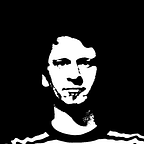Worlds, not stories
You will often hear these days, that data visualization is great for “telling stories”, to “make the complex simple” or to “make boring facts exciting”.
While this all true to some degree, I think it misses the greatest quality of data visualization today: to provide us with new kinds of “glasses” to see the world.
Joel de Rosnay described a fascinating, futuristic device in 1979: the macroscope. Just like the telescope allows us to see far beyond what our eyes would allow us, into the depths of space, and the microscope allows us to look at the infinitely small, a device called macroscope could allow us to investigate the infinitely complex: society, and nature.
We have this device now on our hands: data science and data visualization. It provides with new kinds of “glasses” to look at the world, a body extension that gives us the superpower to change the realities we are looking at, beyond the physical world.
This is a truly fascinating prospect, and the potential of how these new views of the world can also change our world views (cue in overview effect) is actually what keeps me motivated each and every day.
Yet, no world-spectating device is a neutral technology. Just like with photography, there is always a human behind the device, making decisions. How far do we zoom in? What is the focal point of the image? Black and white, or colored? Out of hundreds of shots, which is the one we publish? All of these decisions are made by photographers day in and day out, and the more you think about it, it becomes clearer and clearer that a photo is never an objective reflection, but always an interpretation of reality.
The same is true for data visualization. In a way, I feel like a photo reporter myself. In each new assignment, I chart new territory, travel to unknown “data countries”, lift every rock, and document as much as I can.
But, when I come home, and when it is time to make decisions on what to publish, I need to think about a concise, but also scenic and sensually rich route to what I found to be the essentials of the pheomenon at hand. What were the impressions that lasted? And which images were able to capture this whole world I experienced in one shot?
And exactly in this editing process lies the main editorial contribution of the data visualization designer as author. Let’s make no mistake — even a very data-heavy, “sober” representation of data has an author who made clear decisions on what to include or not, what to combine, or not and what to prioritize. And the same holds for the underlying dataset. So, fully acknowledging the role of authorship, with all the journalisitic responsibility it brings, is an important result of this line of thinking for data visualization.
Let’s face it: the most important issues today are not photographable: financial speculation, climate change, the credit crisis, tax evasion — all these important issues cannot be photographed. Data visualization can help us both to understand these complex issues a bit better, but also to provide images to debate about, to refer back to, and sometimes just to meditate over.
This is why I see data visualization as sort of a new photojournalism — a highly editorial activity using a deceivingly objective-looking apparatus.
Now, what does that have to do with storytelling?
Well, in short, I want to turn my audience from mere consumers, who just passively listen to all the exiting stories I can tell them to fellow travellers, who learn to enjoy data exploration the way I do. I want them to use the visualizations I provide as starting points for their own explorations.
Why? Well, as I tried to sketch above, data does not always equal truth. I want everybody to become a critical consumer of information.
Second, in my view, no knowledge sticks as well as the self-created knowledge: after a first hunch, to look further into the evidence, maybe pondering counter-evidence, and finally formulating a specific, grounded belief — this is the type of knowledge you will never forget.
The way kids learn — probing a possibility space, trial and error, action and reaction — this type of active information discovery is something I really like to promote, in order for us all to become and stay critical consumers of all the information that surrounds us, and interactive visualizations can help us train that muscle.
Consequently, any serious visualization of a sufficiently complex topic should always aim exposing the complexity, the inner contradictions, the manifold nature of the underlying phenomenon. I like to provide users with a structured way to explore a complex phenomenon on their own terms, in a sensually rich mosaic of media and facts rather than a pre-digested narrative with a surprise at the end. To me, interesting topics rarely boil down to a single story.
Of course, I am a fan of smartly applied narrative tricks to guide the audience’s attention in subtle ways. In the end, a lot of the design skills in information design boil down to establishing a certain dramaturgy that unfolds when people interact with our pieces.
But, to me, over-emphasizing the role of storytelling (demanding that every visualization should “tell a story” — whatever that means, anyways), carries the risk to throw us back into linear, author-driven, leanback media formats (think “TV”). I think there are great lean-back media products, but data visualization is best consumed wide awake, standing upright, ready to jump.
So, let’s work on exposing the complexities and ambiguities of working with data. Let us get better at knowing and questioning the origin of the data. Let us take time to investigate and explore the material, to create variations and make mistakes. Let us design for demanding, curious audiences.
Let’s tell worlds, not stories.
(Thanks Bruce)
Originally published at well-formed-data.net.
